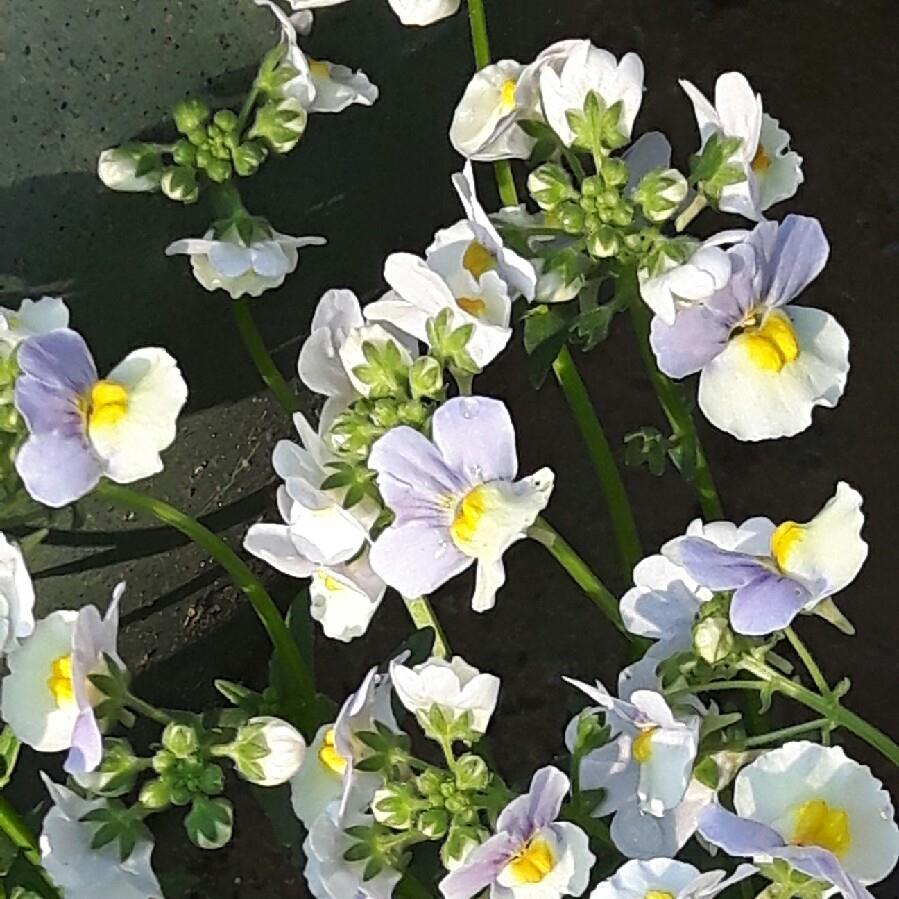
Nemesia 'Easter Bonnet'
Nemesia 'Easter Bonnet'
Nemesia is a very compact and well-branched plant which flowers very early and continues throughout Summer and into Autumn. The two-lipped flowers are often bi-coloured. Nemesia dies back in Winter and returns in Spring, although it needs protection if the temperature drops below freezing. 'Easter Bonnet' is tolerant of cool conditions, untroubled by pests or disease and with a long flowering period, virtually nonstop from spring until autumn, with lavender and white blooms.
Contributed by @belindah
-
Full sun to partial shade
-
Occasional watering
-
Not Frost hardy
-
Moist and free draining
Common name
Nemesia 'Easter Bonnet'
Latin name
Nemesia 'Easter Bonnet'
type
Annual and perennial bedding plants
family
Scrophulariaceae
ph
5.0 - 7.0 Acid - Neutral
Plant & bloom calendar
-
Best time to plant
-
When the plant will bloom
full grown dimensions
 0.30 M
0.30 M
0.30 M
0.30 M
Nemesia 'Easter Bonnet'
Nemesia is a very compact and well-branched plant which flowers very early and continues throughout Summer and into Autumn. The two-lipped flowers are often bi-coloured. Nemesia dies back in Winter and returns in Spring, although it needs protection if the temperature drops below freezing. 'Easter Bonnet' is tolerant of cool conditions, untroubled by pests or disease and with a long flowering period, virtually nonstop from spring until autumn, with lavender and white blooms.
Planting young plants
From Late Spring TO Late Spring
Nemesia prefer moist, well-drained soil that's rich in organic matter. Set out seedlings/starter plants after last frost into the garden when all danger of frost has passed, spacing them 4 to 6 inches apart. Disturb the roots as little as possible and water well after planting. Adding a layer of organic mulch will help insulate the roots from extremes in temperature, as well as helping to retain moisture in the soil
Flowering Season
From Mid Autumn TO Late Summer
Where the temperatures are fairly cool, nemesia will bloom from late Spring right through Summer and early Autumn to first frost
Propagating by seed
From Early Spring TO Late Spring
Start seeds indoors 8-10 weeks before last frost date. If sowing indoors, sow from early to late spring in fresh seed sowing compost. Temperatures above 60F (15C) depress germination, as do fluctuating temperatures, so use a thermostatically controlled propagator on a windowsill or in a greenhouse out of the sun.
























